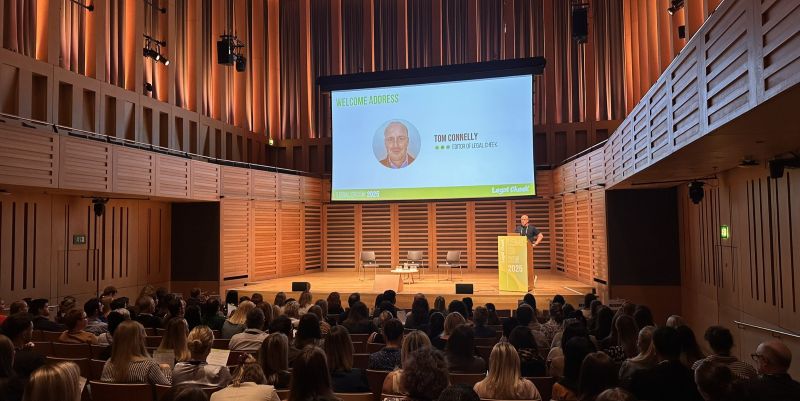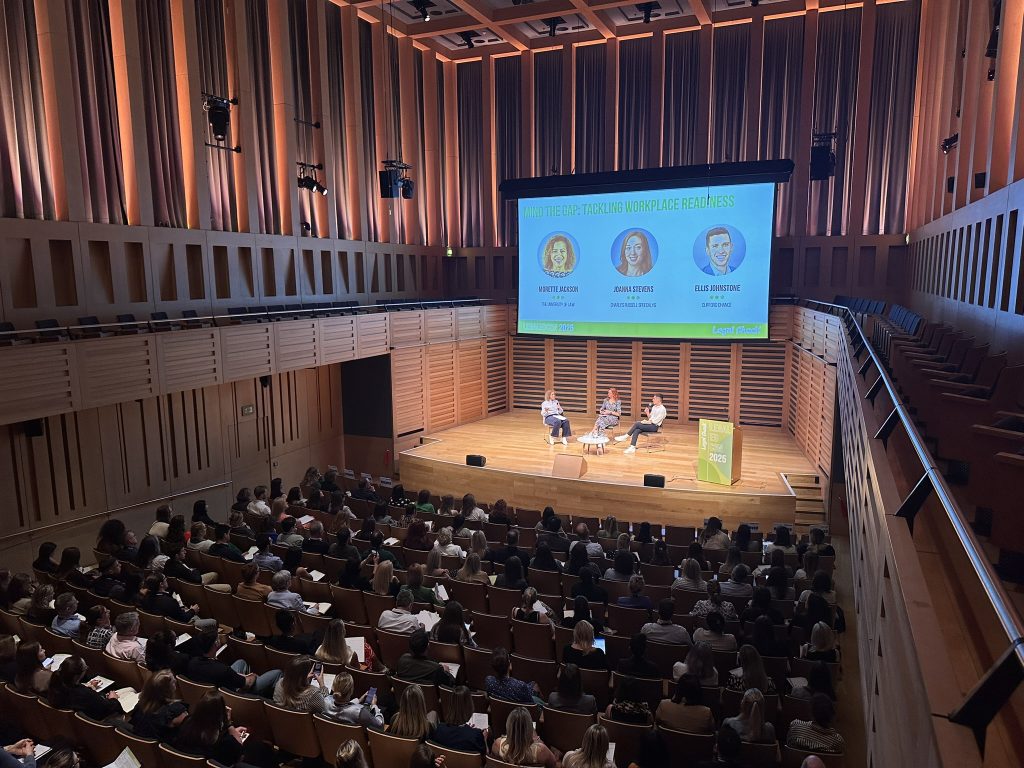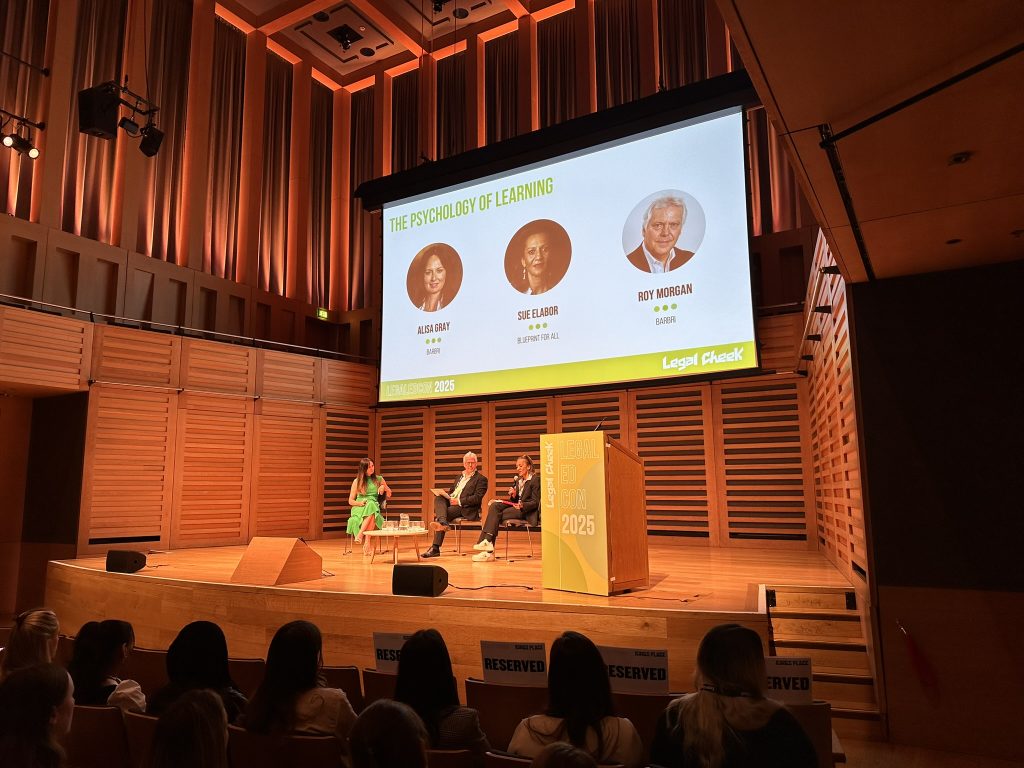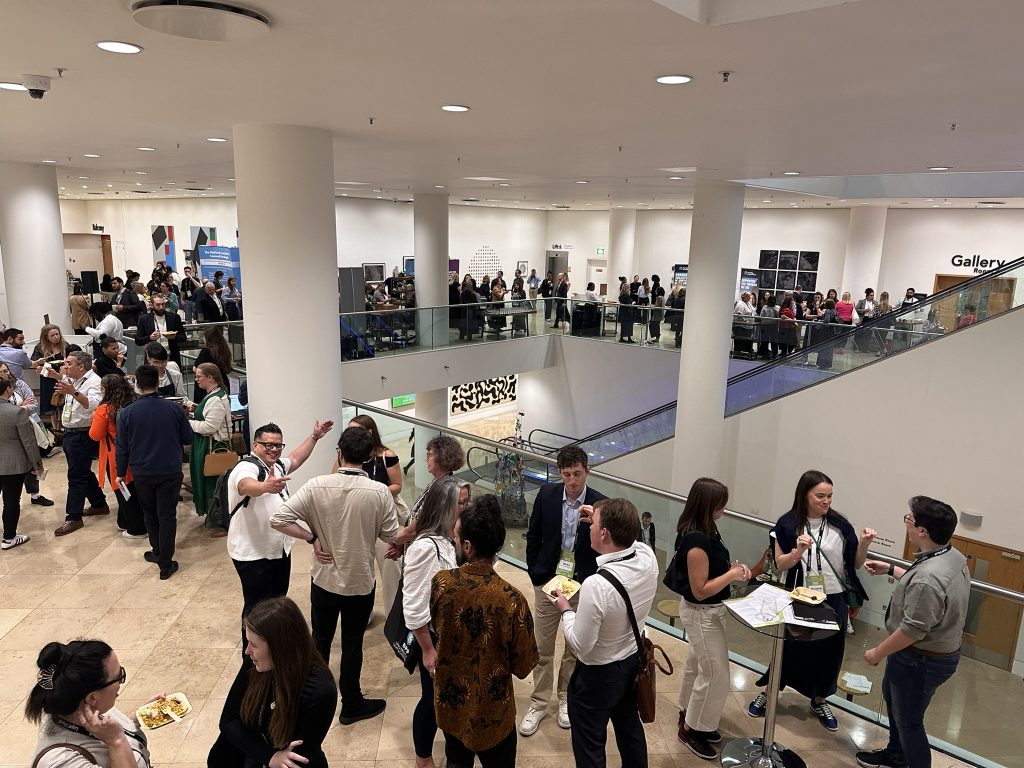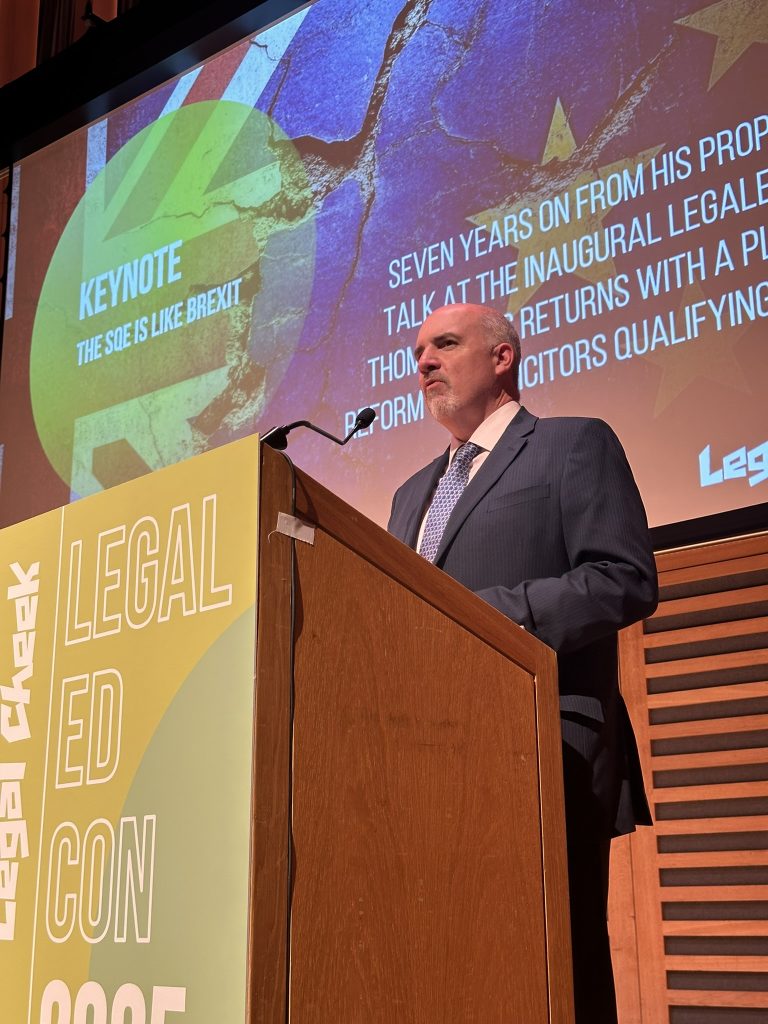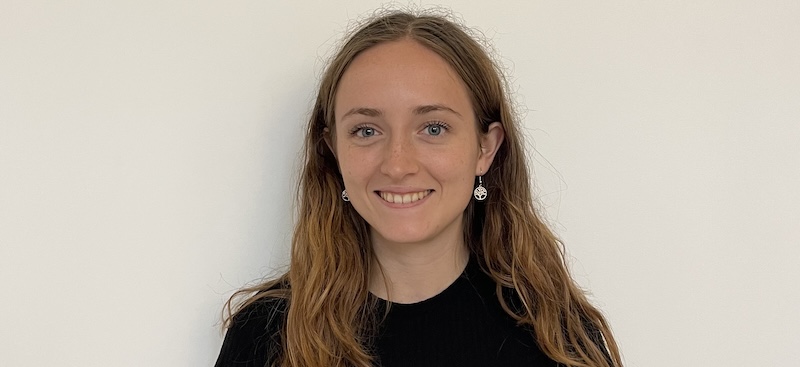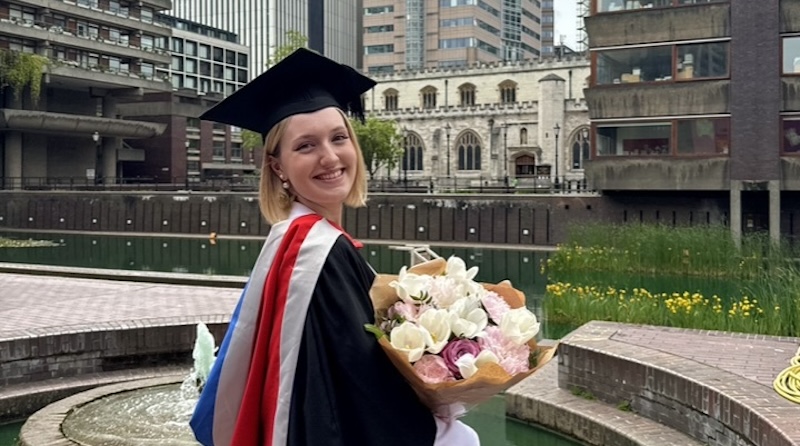ULaw SQE student Layla Qazi on her journey from history graduate and tax consultant to future trainee

Future Taylor Wessing trainee Layla Qazi didn’t set out to be a lawyer from day one. She read history because she loved the subject and liked the flexibility of converting later, and she always had law in mind.
“I was so happy to get in,” she says of studying history at Oxford, adding that the subject isn’t “so divorced from law that it’s not really a difficult adjustment.” But as a non-law undergrad, she quickly realised the profession doesn’t necessarily come to you. “As a non-law student, you have to go out and seek things a lot more,” she says. She missed out on first-year insight schemes, simply unaware of them as a history student. The silver lining? “There are so many different entry points now and it’s great if you do a first-year insight scheme, but it’s not necessary to get a training contract.”
In her second year and beyond, she became a fixture at law fairs and networking events. “I don’t even think I could count how many I went to. I went to so, so many,” she laughs. Fairs can feel like speed networking, but even a few minutes with a couple of trainees gives you something real to reference later — and sometimes you discover a firm you’d never thought about.
Off the back of that she joined the university’s commercial law society and moved from attendee to organiser, sitting on the sponsorships committee and emailing graduate recruitment, setting up panels and chatting to trainees. Seeing “the other side of it” made those application form staples much easier. The dreaded “why this firm?” stops being so difficult when you’ve spoken on a more personal level with the firm about team sizes, the support trainees get and which seats are on offer.
Qazi stresses that there’s no single trick to success but focusing on what genuinely interested her and being honest about the fit really helped. She knew early on that the sectors drawing her in were tech and life sciences. That guided her research and helped her craft a consistent story across applications and interviews. “You can dive into your specific interests and create a bit of a story for the ‘why law’ and the ‘why this firm’ question,” she says.
She also drew on “unorthodox” experiences to evidence her skills. In one application she wrote about helping run her university roller-skating society. It was small when she started, but after she convinced a few friends to join, she and the committee grew it into something much bigger. “It’s so random, but honestly the non-traditional stuff really does stick out if you can show that you’ve got a bit of personality and drive.” The lesson, she says: you don’t have to be president of the law society to have something interesting to say. “I worked the Next Boxing Day sale,” she jokes. “That will teach you something about resilience. Honestly.” And that’s what firms are looking for.
Between university and law school, Qazi took what many would see as a detour: a year as a tax consultant at EY. It turned out to be a perfect primer for vacation schemes and, soon enough, a training contract. “The biggest thing for me is confidence,” she says. Coming into vac schemes after time in a corporate environment meant she wasn’t fazed by writing to clients or speaking up in meetings. “You’ll have to do things like presentations to partners and I’m like, ‘I’m just going to pretend this is my manager.’” Perhaps most importantly, it sharpened her writing style. History essays and client emails are different beasts; in practice “you still have to analyse things but with a view to an answer… it’s got to have your client in mind.”
Her tax job turbo-charged her commercial awareness, too. Anticipating the impact of the government’s annual budget or changes to the ‘non-dom’ tax regime, and thinking about how these changes would impact her clients, soon became second nature. Building on that foundation, she developed a daily habit of reading newsletters like Finimize and scanning the Financial Times — which made the buzzword “commercial awareness” far less daunting.
From there, she dug deeper into a handful of topics she genuinely cared about, turning to law firm podcasts and sector reports that translate abstract headlines into client issues. Those bridges from “news” to “what does this mean for this client and our firm?” are, she points out, exactly what interview case studies probe. Picking news topics she found genuinely engaging — tech and life sciences — kept the routine sustainable and the conversations authentic.
Vacation schemes confirmed law was the right path for her, securing spots at Osborne Clarke, Pennington Manches Cooper, Cooley, and of course Taylor Wessing. When asked about her favourite practice areas so far, she says every seat has had its own highlights.
At Taylor Wessing, she especially enjoyed the breadth of her seats, ranging from banking and finance to tech, IP and information. “Broad teams,” she explains, “let trainees explore and find a niche without feeling pigeonholed too early.” That open-mindedness extends to qualification, too: when friends ask her what type of lawyer she’ll be, she replies wherever the work and the seats take her.
With her training contract at Taylor Wessing secured, Qazi began her transition from historian to lawyer with The University of Law. She has just completed her PGDL and will be sitting her SQE exams there over the next year. “The PGDL course at ULaw did a great job of starting things from the basics and building different concepts up,” she explains. “The structure of the course meant it was never overwhelming … I feel very confident going into the SQE having had the ULaw PGDL as a foundation.” Converting from history to law is a sprint through core subjects; doing it within ULaw’s structured programme, with clear materials and a supportive teaching team, made the leap feel manageable.
Looking ahead, she says: “The course has definitely developed my critical analysis abilities and encouraged me to think about academic concepts from a practical perspective. Next summer … the SQE Plus part will let me explore different practice areas ahead of starting my TC.” Having already endured long stretches of exams — first at university, then as a tax consultant, and now with the PGDL and SQE — she’s eager for the finish line. “What am I most looking forward to? Finishing the SQE,” she laughs. “Exam-free” life can’t come soon enough.
If she could advise her first-year self, she’d start with reassurance: follow your interests, build skills, then learn to frame them in a lawyerly light. “I was so surprised the roller-skating thing went down so well!”. The point isn’t to collect a checklist of “law-only” experiences. It’s to show initiative, teamwork, time management and resilience — the qualities firms look for in trainees. Whether it’s building a university society from scratch, surviving a Boxing Day rush at Next or presenting to senior people at work, every experience counts if you can draw out the skills. “Relax and do what you want to do,” she says, “but also do law stuff as well.” That balance has kept her motivated — and made her applications feel personal rather than generic.
For students starting out, her advice is straightforward. Meet as many firms as you can early on — at fairs, talks and virtual events — rather than relying solely on what’s on their websites. Think carefully about the sectors and environments you’ll thrive in, then build your narrative around that. Make use of university and law school resources: newsletters you’ll actually read, podcasts you’ll actually listen to, and reports that translate abstract headlines into challenges and opportunities for clients. At the same time, pursue the passions and interests that genuinely appeal to you — non-legal experiences are just as important. And if your path isn’t linear, that’s fine. A year in industry can make you calmer, clearer and more client-focused when you eventually step through a firm’s doors.
With her PGDL completed at ULaw and the SQE ahead this year, she’s now closing out the study phase and looking forward to day one at Taylor Wessing. The destination hasn’t changed since those early career talks, she’s simply taken the route that made the most sense for her — and picked up a toolkit along the way that will let her hit the ground running when client work begins.
Legal Cheek Live in London takes place in-person NEXT WEEK on Thursday, 11 September. The afternoon features a series of careers and commercial awareness workshops delivered by top law firms as well as a careers fair featuring early talent and graduate recruitment teams. Register to attend now.
About Legal Cheek Careers posts.
















